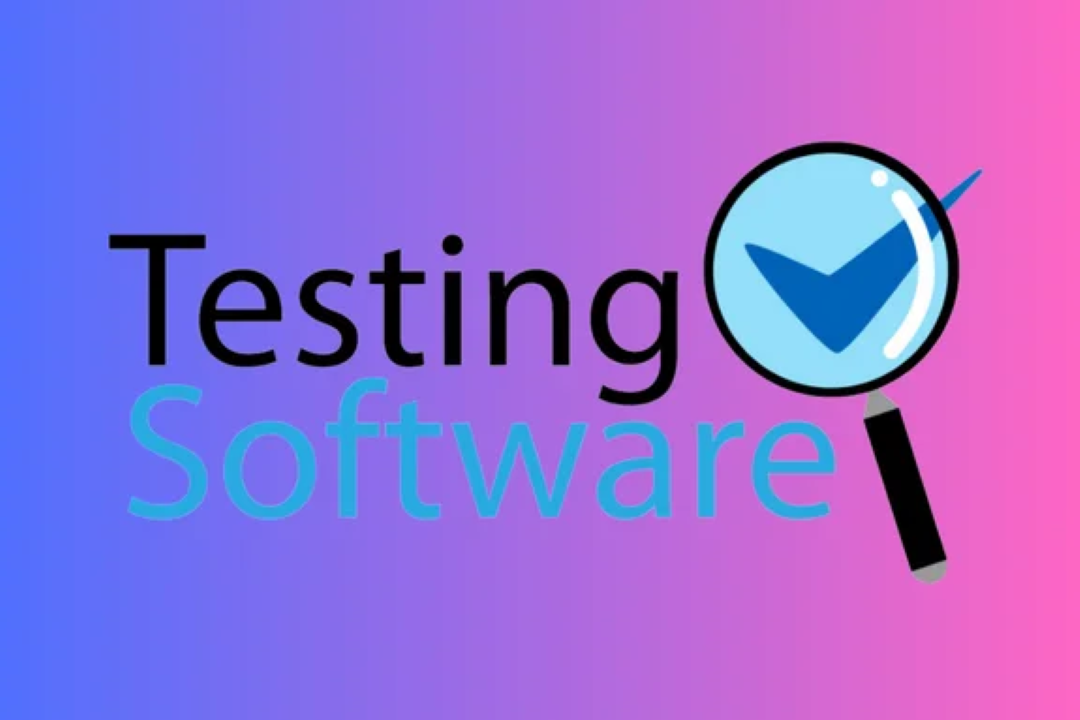selenium web testing course LONDON
The Selenium Web Testing Course offered in London by JustAcademy is a comprehensive program designed
selenium web testing course LONDON
The Selenium Web Testing Course in London by JustAcademy is an invaluable opportunity for individuals looking to enhance their skills in automated testing of web applications. As the demand for reliable software grows, mastering Selenium, one of the most widely used frameworks for web testing, becomes crucial. This course provides hands-on training with real-time projects, allowing participants to understand the intricacies of test automation effectively. By learning Selenium, students can improve their efficiency in identifying and resolving software issues, thereby ensuring higher quality products and increasing their employability in the competitive tech landscape.
To Download Our Brochure: https://www.justacademy.co/download-brochure-for-free
Message us for more information: +91 9987184296
The Selenium Web Testing Course in London by JustAcademy is an invaluable opportunity for individuals looking to enhance their skills in automated testing of web applications. As the demand for reliable software grows, mastering Selenium, one of the most widely used frameworks for web testing, becomes crucial. This course provides hands on training with real time projects, allowing participants to understand the intricacies of test automation effectively. By learning Selenium, students can improve their efficiency in identifying and resolving software issues, thereby ensuring higher quality products and increasing their employability in the competitive tech landscape.
Course Overview
The Selenium Web Testing Course in London offered by JustAcademy is designed to equip participants with essential skills in automated web testing. This comprehensive course covers the fundamentals of Selenium, including its architecture, the creation of test scripts, and the management of test cases. Participants will engage in hands-on projects that simulate real-world scenarios, enabling them to apply their knowledge effectively. By the end of the course, attendees will be proficient in utilizing Selenium WebDriver, enhancing their ability to conduct efficient testing for web applications, ultimately preparing them for successful careers in software testing and quality assurance.
Course Description
The Selenium Web Testing Course in London at JustAcademy is a hands-on training program designed for aspiring software testers and quality assurance professionals. This course covers the essentials of Selenium, including WebDriver, test automation frameworks, and best practices for test script development. Participants will engage in real-time projects that simulate practical scenarios, allowing them to refine their skills in automated testing for web applications. By the end of the course, students will have the knowledge and expertise to create robust test cases, effectively manage testing processes, and enhance the quality of web applications, positioning them for success in the competitive tech industry.
Key Features
1 - Comprehensive Tool Coverage: Provides hands-on training with a range of industry-standard testing tools, including Selenium, JIRA, LoadRunner, and TestRail.
2) Practical Exercises: Features real-world exercises and case studies to apply tools in various testing scenarios.
3) Interactive Learning: Includes interactive sessions with industry experts for personalized feedback and guidance.
4) Detailed Tutorials: Offers extensive tutorials and documentation on tool functionalities and best practices.
5) Advanced Techniques: Covers both fundamental and advanced techniques for using testing tools effectively.
6) Data Visualization: Integrates tools for visualizing test metrics and results, enhancing data interpretation and decision-making.
7) Tool Integration: Teaches how to integrate testing tools into the software development lifecycle for streamlined workflows.
8) Project-Based Learning: Focuses on project-based learning to build practical skills and create a portfolio of completed tasks.
9) Career Support: Provides resources and support for applying learned skills to real-world job scenarios, including resume building and interview preparation.
10) Up-to-Date Content: Ensures that course materials reflect the latest industry standards and tool updates.
Benefits of taking our course
Functional Tools
1 - Selenium WebDriver: Selenium WebDriver is the core component of the Selenium suite used for automating web applications. It provides a programming interface to create and execute test scripts in various programming languages such as Java, C#, Python, and Ruby. WebDriver interacts with web browsers directly and supports various browser types, enabling testers to simulate user interactions accurately. It allows for complex test scenarios and can manage multiple browser windows simultaneously, enhancing testing efficiency and effectiveness.
2) TestNG: TestNG is a testing framework inspired by JUnit and NUnit, specifically designed to facilitate test configurations and parallel execution of tests. In the Selenium Web Testing Course, students learn to utilize TestNG to organize their test cases efficiently, create data driven tests, and generate insightful reports. Its robust annotations make it easier to manage and execute tests, enhancing the overall testing framework's usability and scalability. TestNG’s suite and grouping functionalities further streamline the testing process, making it an essential tool in Selenium automation.
3) Apache Maven: Apache Maven is a build automation tool used primarily for Java projects. In the context of the Selenium Web Testing Course, students are taught to use Maven for managing project dependencies, packaging projects, and executing tests. By leveraging Maven’s powerful project management capabilities, students can streamline their build processes and ensure that the required libraries for Selenium and TestNG are easily integrated. Furthermore, Maven aids in maintaining consistency across environments, which is crucial for effective test execution.
4) Selenium Grid: Selenium Grid is a tool that enables the execution of tests on multiple machines and browsers simultaneously. In the course, students learn how to set up a Selenium Grid to facilitate cross browser testing and reduce the time needed to validate web applications across different environments. By distributing tests across various nodes, Selenium Grid enhances scalability and speeds up the testing process, helping testers achieve better coverage and quicker feedback loops.
5) Cucumber: Cucumber is a popular Behavior Driven Development (BDD) tool that allows students to write test cases in a human readable format. In the Selenium Web Testing Course, Cucumber is introduced to facilitate collaboration between developers, testers, and stakeholders, ensuring everyone can understand the test scripts. By using Gherkin syntax to define test scenarios, students learn to create more meaningful tests that align with business requirements. This approach fosters better communication and allows for more comprehensive testing practices in agile environments.
6) Page Object Model (POM): The Page Object Model is a design pattern widely used in Selenium automation that promotes code reusability and maintainability. In the course, students are trained on how to structure their test frameworks using POM, where each web page is represented as a class containing its elements and actions. This separation of concerns simplifies the test structure, making it easier to update tests when web applications change. By implementing POM, students learn to create organized and efficient test suites that adhere to best practices in software development.
Each of these tools is integral to mastering Selenium web testing, equipping students with the knowledge and skills necessary to tackle real world automation challenges effectively. By understanding their functionalities and applications, participants in the course will build a comprehensive toolkit for successful automated testing.
Certainly! Here are additional key points and concepts related to Selenium web testing that can enrich the training experience in JustAcademy's Selenium Web Testing Course:
7) Implicit and Explicit Waits: Understanding waits is crucial for dealing with dynamic web applications that load elements at different rates. The course covers both implicit and explicit waits, demonstrating how to use them to handle timing issues in Selenium tests. Implicit waits set a default wait time for the entire test script, while explicit waits allow for fine grained control over waiting for specific elements to be present or clickable, ensuring reliability in tests.
8) Locators and Strategies: A fundamental aspect of Selenium testing is identifying web elements accurately. The course delves into various locator strategies, including ID, Name, Class Name, CSS Selector, XPath, and Link Text. By mastering these strategies, students are equipped to efficiently find and interact with elements on a webpage, making their test scripts more robust and less prone to failure due to changes in the web application’s structure.
9) JavaScript Executor: Some actions, such as scrolling or interacting with elements that are not accessible via traditional WebDriver methods, may require executing JavaScript. The course teaches students how to use the JavaScript Executor interface to perform these advanced operations, enhancing their ability to automate complex interactions on web applications.
10) Assertions: Verifying the application’s functionality is critical in testing. The course emphasizes various assertion techniques, using assertion libraries from TestNG or JUnit to validate outcomes in tests. Students learn how to assert conditions like page title, text presence, and element visibility, which helps ensure that applications behave as expected during testing.
11 - Handling Pop ups and Alerts: Web applications often involve pop ups and alerts that can disrupt automated tests. The course provides strategies for handling different types of pop ups, including JavaScript alerts, confirmation dialogs, and file upload prompts. Students gain insights into switching between different windows and frames, ensuring that their tests can navigate through various layers of a web application seamlessly.
12) Data Driven Testing: This approach allows students to run the same test with different sets of data, improving coverage without duplicating code. The course demonstrates integrating data sources such as Excel, CSV files, or databases into test cases using TestNG. This empowers students to create flexible and reusable test scripts that can validate multiple scenarios with minimal effort.
13) Continuous Integration (CI): The course introduces the concept of integrating automated tests into CI/CD pipelines using tools like Jenkins or GitLab CI. Students learn how to configure their Selenium tests to run automatically whenever code changes are made, thus providing immediate feedback to developers and facilitating faster release cycles.
14) Reporting and Logging: Effective reporting and logging are essential for tracking test results and debugging. The course includes instruction on generating detailed test reports using tools like Allure Reports or Extent Reports. Students also learn how to implement logging in their test scripts to record important events and errors, aiding in troubleshooting and maintaining high test quality.
15) Mobile Testing with Selenium: While the primary focus of the course is web testing, students are introduced to the potential of extending their Selenium knowledge to mobile testing. They explore tools like Appium, which allows for mobile application testing using Selenium practices, further expanding their automation skill set.
16) Best Practices in Test Automation: Students are encouraged to adopt best practices, including creating modular and maintainable test scripts, using version control for test code, and maintaining an organized folder structure. This prepares them for real world scenarios where test maintenance and team collaboration are vital for success.
By covering these additional points, the Selenium Web Testing Course at JustAcademy provides a comprehensive and practical approach to automation testing, ensuring that participants are well prepared to tackle the challenges they may face in their careers.
Browse our course links : https://www.justacademy.co/all-courses
To Join our FREE DEMO Session: Click Here
This information is sourced from JustAcademy
Contact Info:
Roshan Chaturvedi
Message us on Whatsapp: +91 9987184296
Email id: info@justacademy.co












